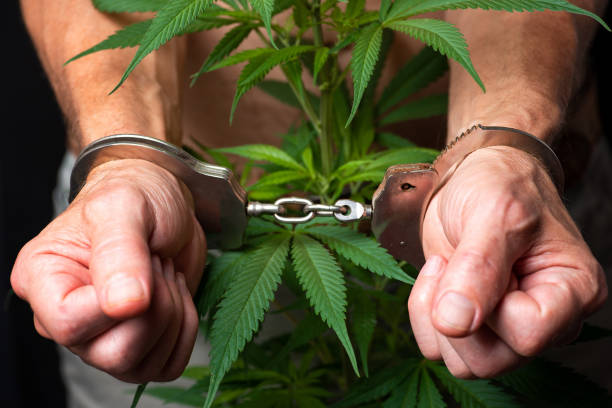California legalized marijuana for recreational use in 2016, yet thousands of nonviolent offenders remain imprisoned on outdated cannabis-related charges.
As of this year, nearly 2,000 individuals in the state are still incarcerated for marijuana-related crimes, despite it now being legally sold and taxed.
According to the California Department of Corrections and Rehabilitation, nearly 90% of those convicted were charged with possession, while the remaining 10% were charged for sales or distribution. It is only fair to release these individuals since it goes against the rules of justice to keep punishing them for crimes no longer considered illegal.
Retroactive justice ensures that laws change to reflect society’s ideals and that people do not have to suffer because of old or unfair rules that are in place. Additionally, retroactive justice highlights the harm that mass incarceration causes to society, especially in the communities that suffer the most from these outdated laws.
This mainly occurs in Black and Latino communities, where the stigma associated with having a criminal record contributes to institutional discrimination.
For instance, according to the American Civil Liberties Union, Black Americans are four times more likely to be apprehended for marijuana possession rather than White Americans despite both groups having similar usage rates.
Furthermore, a Marijuana Policy Project report claims that this institutionalized injustice leads to cycles of marginalization and poverty.
It is crucial to recognize that many of the nonviolent marijuana offenders are serving sentences that no longer accurately reflect the legal reality of the modern cannabis market. Within this market, marijuana is not only lawfully used but also taxed and controlled like any other commodity.
One specific individual that shows how severe this problem can become is Parker Coleman. Coleman is serving 60 years for marijuana distribution however, in the witness evidence, no one was seen purchasing marijuana from him.
Given that marijuana is currently legal in California for both recreational and medicinal use, Coleman’s 60-year sentence for marijuana distribution is extremely harsh.
Kyle Kazan, former law enforcement official, and Coleman’s advocate, said, “Having already served 10 years of hard time with another five decades to go… demonstrates the massive inequity Parker is living.”
This case shows the reality of the unfairness that persists when nonviolent marijuana offenders are still imprisoned even after the drug is legalized.
Coleman’s harsh sentence emphasizes the need for reforms that connect current legal frameworks with past convictions, ensuring that no one suffers from outdated marijuana laws.
Moreover, the increased public support for marijuana liberalization and the release of nonviolent offenders have significant economic benefits.
In addition to saving money, by redirecting the funds saved from lower incarceration rates into community services such as health care and education, California may invest in the futures of individuals most impacted by past injustices.
According to a NORML report, nearly 200,000 offenders’ records have already been erased in California, saving money on court processes and prison upkeep.
As a result, California has the opportunity to both lessen the financial burden of mass incarceration and reinvest the savings into vital community services by accepting marijuana liberalization and releasing nonviolent offenders.
Beyond the economic benefits, the moral aspect of reform must be considered.
Public opinion agrees that releasing nonviolent marijuana offenders is right as many Americans now perceive marijuana use as a matter of personal choice rather than a criminal act.
A recent Pew Research Center survey shows, 88% of Americans think marijuana should be allowed for either recreational or medical usage.
This overwhelming support is a reflection of the rising realization that criminalizing marijuana has a detrimental impact on individuals and communities, especially those who have been wrongfully imprisoned for nonviolent crimes.
Coleman and other nonviolent offenders have suffered injustices, and California needs to reevaluate and correct these wrongs in light of the evidence and public support for legalizing marijuana.
By freeing those incarcerated for past cannabis-related offenses, we support the ideals of retroactive justice while simultaneously attempting to fix the harm done to marginalized populations.
Let’s try to create a society where using marijuana is a matter of personal preference and no one is penalized for outdated laws.
Join the fight to release those who are unlawfully imprisoned and construct a just future for all. Become a member of advocacy organizations such as the Drug Policy Alliance or take part in local campaigns to change marijuana regulations.
To learn more about how you can help free nonviolent marijuana offenders, visit the ReLeaf Foundation website as they focus on raising money and spreading awareness for nonviolent marijuana convicts while providing several ways for you to get involved in their objective.







